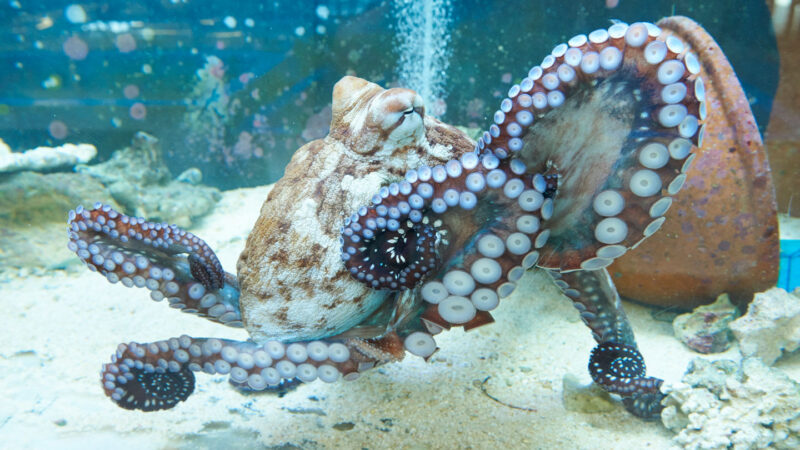
For the first time, scientists have recorded brain waves from freely moving octopuses. The data reveal some unexpected patterns, though it’s too early to know how octopus brains control the animals’ behavior, researchers report February 23 in Current Biology.
Octopuses also tend to be feisty and clever. That means they don’t usually put up with the uncomfortable equipment typically used to record brain waves in animals, says neuroethologist Tamar Gutnick of the University of Naples Federico II in Italy.
To work around these obstacles, Gutnick and colleagues adapted portable data loggers typically used on birds, and surgically inserted the devices into three octopuses. The researchers also placed recording electrodes inside areas of the octopus brain that deal with learning and memory. The team then recorded the octopuses for 12 hours while the cephalopods went about their daily lives — sleeping, swimming and self-grooming — in tanks.
Some brain wave patterns emerged across all three octopuses in the 12-hour period. For instance, some waves resembled activity in the human hippocampus, which plays a crucial role in memory consolidation. Other brain waves were similar to those controlling sleep-wake cycles in other animals.
2023-03-23 08:00:00
Original from www.sciencenews.org